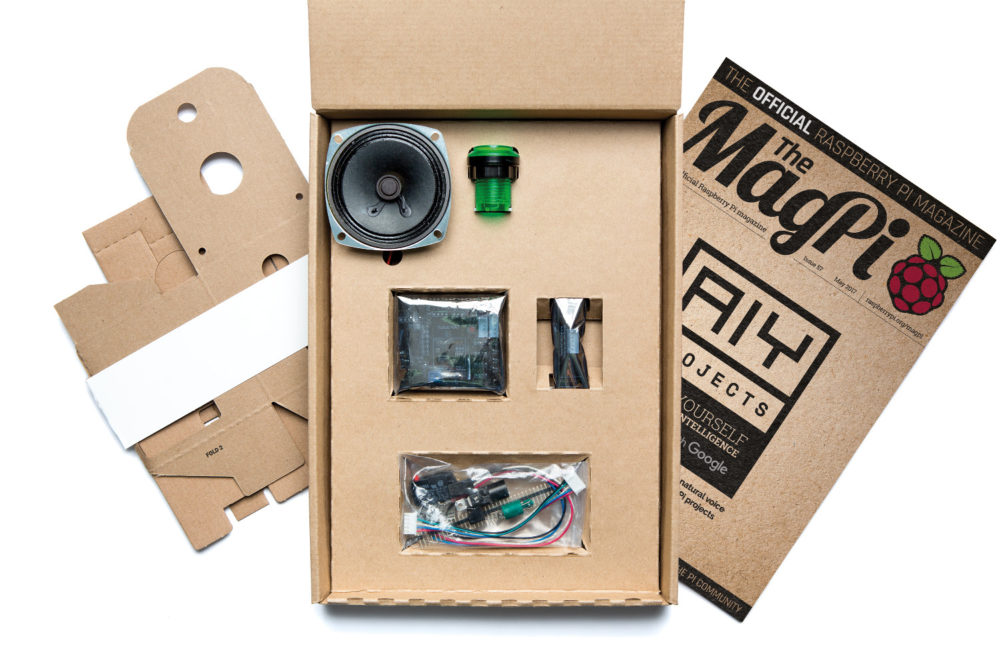Google Home, the smart home speaker converts your traditional home into a smart one. It enables the users to interact with Google Assistant using just voice commands to gain info on the weather, daily schedule, control music and every other connected device in the house. So, are you ready to purchase the $114 Google Home to upgrade your lifestyle? If not then there is now a rather affordable alternative available in the market, but you’ll need to build it yourself.
No, I’m not kidding. The Raspberry Pi Foundation is known to release an official magazine called MagPi each month. It shines a light on the latest developments with the Raspberry Pi mini-computer board and projects related to it. It is also said to include accessories or add-ons as freebies to further push the community to build something. The subscribers only have to supply their own Raspberry Pi boards to make the project work.
For the 57th issue of MagPi, the organization has partnered with Google to provide you with the most wonderful freebie of all time. It comes with a developer kit called AIY Projects, which enables you to add voice interaction to your Raspberry Pi projects. Then, you’re required to use a Raspberry 3 board (which costs around $42) you have lying around — along with the provided hardware. You’ll then need to set up the required software i.e the Google Assistant SDK and Google Cloud Speech API to get it going.
Talking about exactly what you’ll be provided for free with the magazine, the official blog post reads:
Inside the magazine, you’ll find a Google Voice Hardware Attached on Top (HAT) accessory board, a stereo microphone Voice HAT board, a large arcade button, and a selection of wires. Last but not least, you’ll find a custom cardboard case to house it all in.
Further, the blog post mentions that the magazine brings along some examples as to how Raspberry users at Hackster are building Google Home-like projects. The smart home speaker integrates several functions — providing regular weather info is just one voice-activated function while searching the web is another. It would be interesting to see how developers will utilize the free kits — which could become a fun project over this coming weekend.
The magazine (plus the kit), which costs you around $8, is an interesting approach towards getting users excited about the prospects of voice interactions in the future. Though it may not be as robust or beautiful-looking as the Google Home, it looks like an awesome cardboard boombox. Both the co-creators of this developer kit, Google and MagPi, are particularly excited about the possibilities of different:
projects you can create (or enhance) with this kit, whether you’re creating a voice-controlled robot or a voice interface that answers all your questions.
Just recently, The Raspberry Pi Foundation also announced that it has achieved a significant milestone in terms of sales of its tiny and affordable computational boards over the previous five years. And that amounts to over 12.5 million, which now puts them ahead of the widely popular Commodore 64. Raspberry Pi — for those unaware — is a U.K-based charity which seeks to promote the study of computer-based devices through the process of implementation and experimentation.





